Search
Remove Ads
Advertisement
Summary 
Loading AI-generated summary based on World History Encyclopedia articles ...
Search Results

Image
Title Page of Phillis Wheatley's Poems on Various Subjects, 1773
Title page of Phillis Wheatley's Poems on Various Subjects, Religious and Moral, 1773.
Houghton Library, Harvard University.

Image
Frontspiece to Phillis Wheatley's Poems on Various Subjects, 1773
Frontspiece to Phillis Wheatley's Poems on Various Subjects, Religious and Moral, 1773, by the artist Scipio Moorhead (active 1773-1775).
Library of Congress, Washington, D.C.

Article
Poems of Phillis Wheatley and Jefferson's Criticism
Although Phillis Wheatley's poetry found an audience upon publication, it was not well received by everyone and some, notably Thomas Jefferson (l. 1743-1826), dismissed her work entirely as "mimicry" since, according to the prevailing understanding...

Article
The Poems of Christopher Marlowe
Christopher Marlowe (1564-1593), also known as Kit Marlowe, was one of the most influential dramatists of Elizabethan theatre. Though he is best known for his plays, his poems were very popular in their time and are still well-regarded today...
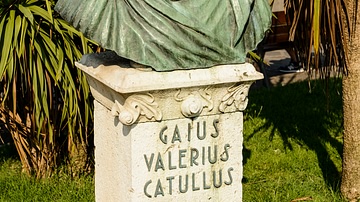
Definition
Catullus
Gaius Valerius Catullus (84-54 BCE) was a Roman poet whose poems are considered to be some of the finest examples of lyric poetry from ancient Rome, despite his youth and early death. Catullus wrote in the neoteric style during the high point...
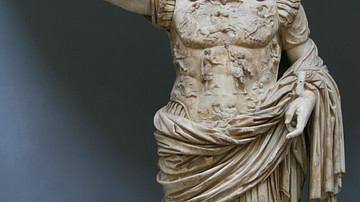
Article
Augustus' Political, Social, & Moral Reforms
Augustus is well known for being the first Emperor of Rome, but even more than that, for being a self-proclaimed “Restorer of the Republic.” He believed in ancestral values such as monogamy, chastity, and piety (virtue). Thus, he introduced...
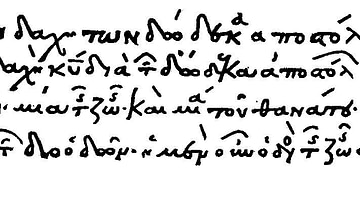
Article
The Didache: A Moral and Liturgical Document of Instruction
During the early years of Christianity, many of the church leaders or "Fathers" wrote down admonishments and instruction on what it meant to be a follower of Jesus as well as what liturgical ceremonies should be followed as a believer in...
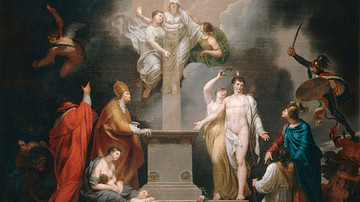
Article
Napoleonic Concordat of 1801 & Religious Pluralism
The Napoleonic Concordat of 1801 defined France's relationship with the Catholic Church for over 100 years. The Organic Articles were added in 1802 and provided state recognition of the Reformed and Lutheran confessions alongside the Catholic...
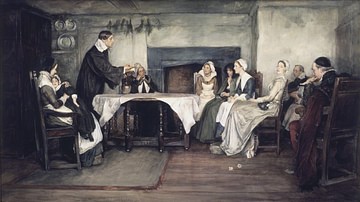
Article
Winthrop & Williams: Religious Persecution & Freedom in New England
The Puritans who settled New England claimed they came to the New World for religious freedom but, once settled, made it clear that this freedom was for themselves only and dissent would not be tolerated. Although the most famous example...

Article
Religious Developments in Ancient India
For well over 1,000 years, sacred stories and heroic epics have made up the mythology of Hinduism. Nothing in these complex yet colourful legends is fixed and firm. Pulsing with creation, destruction, love, and war, it shifts and changes...